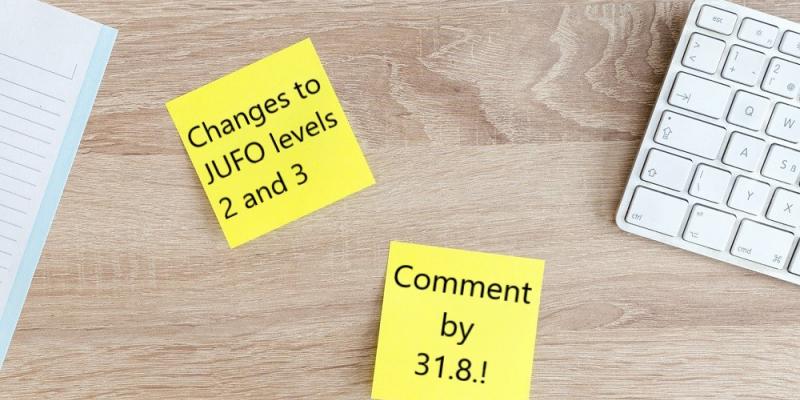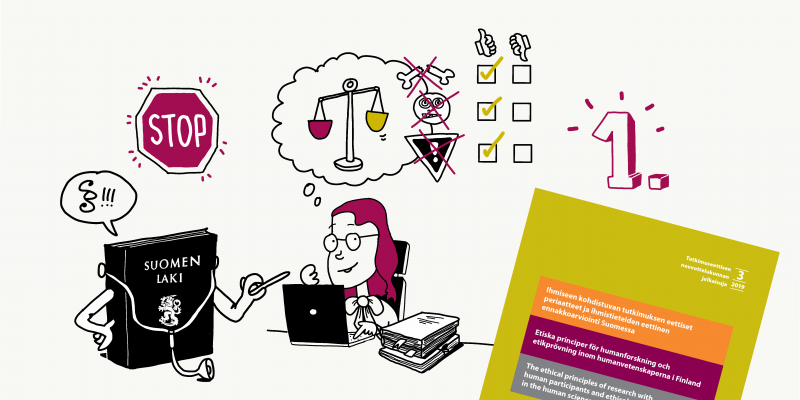
The reference architecture for open science and research provoked discussion at a workshop held on 18 January.
Some seventy experts in open science and research gathered in January at the House of Science and Letters to talk about open science and research architecture. At the beginning of the day, Susanna Nykyri (TAU) introduced the background of the architectural work and the workshop agenda and Ilmari Jauhiainen (AVOTT) presented the working group’s communication plan. They were followed by an in-depth presentation by Ari Rouvari (CSC), further explaining the details of the architecture work during the past year. The discussion was prompted by, for example, the roles identified for the actors in the field of open science and research, as well as the capabilities needed to implement open science and research policies.
In the afternoon, the experts were divided into small groups to discuss already identified open science and research business services and to reflect on what kind of business processes the services could be implemented with. The themes of the small groups were cross-cutting business services, business services for research data and methods, business services for publications and works, businbess services for open education and open educational materials, and responsible assessment business services. The work was facilitated by experts from the architecture working group. Small group outputs later presented and discussed in a learning café at the end of the day.
Cross-cutting business services
Two rather challenging business services were selected for discussion: incentives and support for good scientific practice. Key developments highlighted: 1) ensuring the interoperability of national and local business services in order to achieve a well-functioning structure; 2) harmonising the open science and research approach and existing research business services, because openness is a perspective rather than an entity separate from existing business services; and 3) the importance of national and local strategic guidance for achieving the objectives of open science and research.
Research data and methods
The precise description and designation of new business services proved especially challenging due to the scale and diversity of the field. Where is the boundary between data management planning and data management itself? Or the limit of giving support and doing it yourself? What do we in practice include in methods and their management in this context?
The theme proved to be popular and included a large number of identified business services, so the group was divided into subgroups. One group discussed the business services for planning and support for research data management. Coordinating of research data and management was identified as a new business service. The users of this service are professionals in research organisations for whom the service provides support and common guidelines. After the workshop, it was easier to clarify the names and descriptions of the business services: for example, the word “metadata” was removed from many of the service names because metadata is thought to be an integral part of the concept of research materials.
Another group discussed three previously identified business services: a) development, opening and management of research methods, b) support for the use of research methods, and c) ensuring the quality of the implementation of research data management. These services generated a lot of discussion, and key business processes were identified. On the basis of the discussion, the service descriptions were refined, and the architecture working group was tasked with further clarification.The discussion on quality assurance of research data management focused on data management plans (DMP), curation, and the use of various policies and standards. Support for the use of research methods highlighted The importance of providing individual support for researchers in the use of methods and equipment was at the forefront tms. The need to train support staff was also highlighted.
Scholarly publications and works
The group had a diverse set of participants familiar with scientific writing, publishing and editing, as well as the activities of libraries and the reporting of research activities. There are many well-established approaches in this area and knowledge of how they intertwine could be deeper. Different business processes and data resources could also be better integrated. The development of open publishing, where exiting from the transformative agreements is next in line, brings new ideas for consideration.
More information and advice are needed, such as good scientific writing, evaluation of publication channels, licensing, agreements and contracts, metadata and funding sources. Solutions exist but they can bewilder the individual researcher. There still seems to be room for business service planning.
Open education and open educational resources
The group focused on the business processes needed for publication, quality assessment and utilisation of open educational resources. Thus, for example, the business processes concerning the lifecycle of open educational resources and other open education processes were not discussed.
A key focus of the group’s discussions was that it would be useful to increase awareness of teachers and researchers of open education and the benefits and use of open educational resources as well as to find further incentives to enhance the business process. In particular, merit was identified as an essential factor: open education and opening up educational resources should be taken better into consideration in advancing the careers for teachers and researchers.
Responsible assessment
The group mainly discussed the ongoing reform of research and researcher assessment, since many organisations will need to develop related support measures in the near future. Thanks to the expertise of the group, the business service descriptions produced by the architecture group were clarified and the business services for responsible assessment became clearer. The need to reform the peer review culture according to the principles of responsible researcher assessment was highlighted in the discussion, and providing business services related to peer review was seen as a particular challenge.
The small group also discussed the indicators to be used in the evaluations and the importance of knowledge base. Finally, it was found that the production and support of the knowledge base would be a necessary new business service package.
What’s next?
The workshop provided valuable insights on how the reference architecture should be further developed, especially in the areas of business services and processes. Next, the Architecture Working Group will focus on finalising the reference architecture and, in particular, on defining the business processes. The aim is to have a reference architecture for public review next April.
Text: Ville Henttonen, Ilmari Jauhiainen, Esa-Pekka Keskitalo, Anne Kärki, Laura Niemi, Susanna Nykyri, Jessica Parland-von Essen, Ari Rouvari, Anne Sunikka
Picture: Luca Bravo, Unsplash


